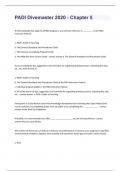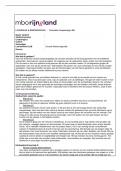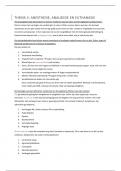College aantekeningen
Summary / Extensive lecture notes - Evolutionary Psychology
- Instelling
- Tilburg University (UVT)
This document includes extensive and well elaborated notes of all the lectures of Evolutionary Psychology, given by Rob Nelissen. This document gives enough information to understand the subjects and needed interpretation for the exam. The lecture notes form a good summary of this course. I passed ...
[Meer zien]













